Regulation
Ex SEC Official Blasts US SEC Amid Rari Capital Settlement Charges
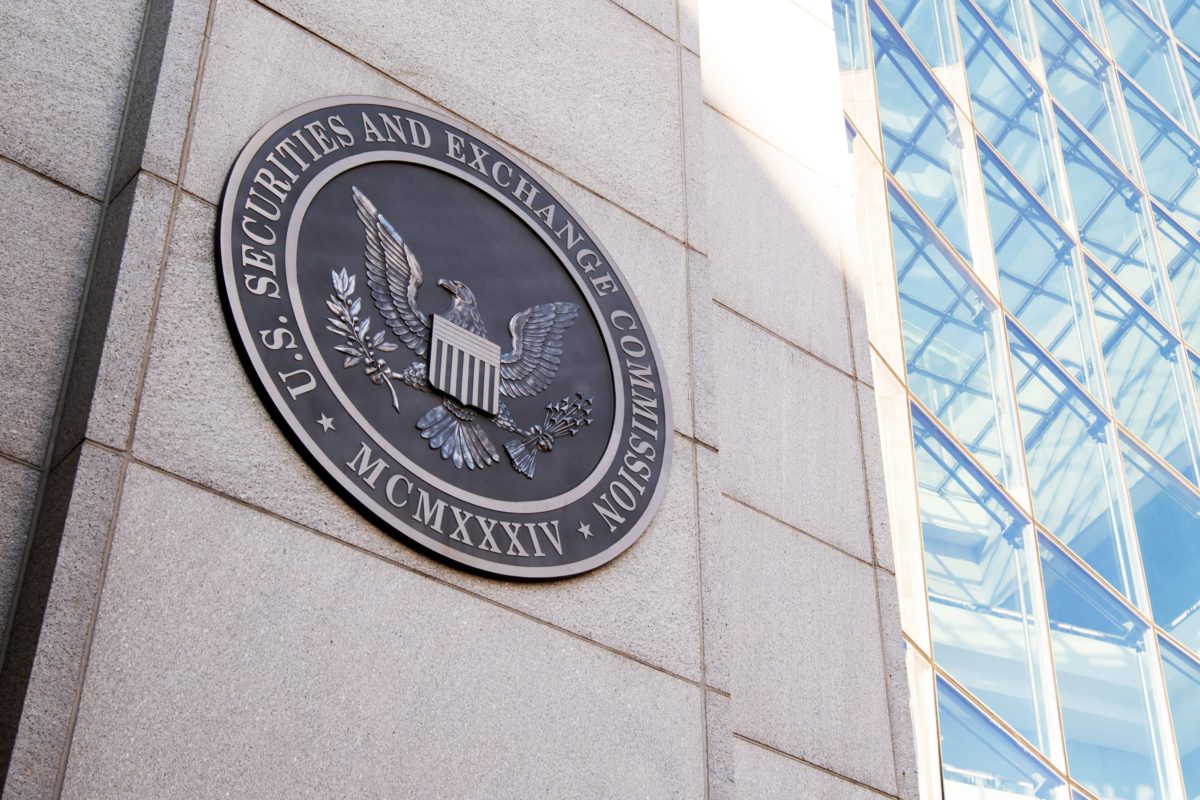
An ex-SEC official has raised concerns over the regulatory body’s approach to digital assets, coinciding with a recent settlement involving the decentralized finance (DeFi) platform, Rari Capital.
Michael Liftik, an ex SEC official and current partner at law firm Quinn Emanuel, emphasized the agency’s reluctance to issue clear guidelines for digital assets, while pursuing enforcement actions against firms in the sector. His remarks have sparked further debate on the SEC’s regulatory strategy.
Rari Capital Settlement with the SEC
The SEC has announced it had settled charges against Rari Capital and its co-founders. The DeFi platform, which offered yield-bearing services to crypto investors, faced accusations of misleading investors and engaging in unregistered broker activity.
Rari Capital’s Earn pools, marketed as being able to autonomously manage and rebalance investments, were found to require manual intervention, contradicting the firm’s claims.
The settlement also covered activities related to Rari’s Fuse pools, with the agency stating that the co-founders, Jai Bhavnani, Jack Lipstone, and David Lucid, were involved in broker activities without proper registration. At its peak, the platform held over $1 billion in assets. Though Rari Capital and its executives neither admitted nor denied the charges, they agreed to cease breaking securities laws in the future.
Ex SEC Official Blasts Approach to Enforcement
Liftik’s criticism of the U.S. Securities and Exchange Commission’s approach resonates with broader discontent within the crypto industry. He highlighted the agency’s preference for enforcement actions over rulemaking or providing clear guidance.
In addition, the ex-SEC Official noted that the agency’s reliance on a “whack-a-mole” enforcement strategy, where firms are targeted one by one, creates a difficult operating environment for companies trying to comply with evolving rules.
A memorable line from Michael Liftik, partner at law firm @quinnemanuel and a former senior @SECGov employee, from today’s @FinancialCmte hearing:
“The SEC has refused to issue new rules or meaningful guidance relating to digital assets and, at the same time, has engaged in… https://t.co/ZTCxly1ViG
— Eleanor Terrett (@EleanorTerrett) September 18, 2024
This criticism comes as the U.S. Securities and Exchange Commission continues to scrutinize decentralized finance platforms. Over recent years, several firms, both centralized and decentralized, have been charged with securities violations, reinforcing Liftik’s argument. The agency has made it clear that labeling a platform as “decentralized” or “autonomous” does not exempt it from securities laws.
Rari Capital’s History and Hack Incident
Rari Capital’s legal troubles were compounded by a significant exploit in May 2022, when its Fuse borrowing and lending platform was hacked, leading to the theft of $80 million.
As a result, the hack forced the firm to halt new deposits and begin winding down the platform, leading to its eventual shutdown.
In the agency’s settlement, the agency acknowledged the firm’s cooperation in returning performance-based fees to affected users and its remedial efforts in response to the hack. The settlement with Rari Capital Infrastructure LLC, which took over the firm after the hack, further stipulated that the company must refrain from violating securities laws in the future.
Growing Regulatory Divide in U.S. Crypto Legislation
The U.S. Securities and Exchange Commission’s latest actions come amid an ongoing debate in Congress over crypto regulation. Recent hearings have exposed a divide among lawmakers regarding how the digital asset industry should be regulated. A memo circulating in Congress suggests that some Democratic leaders view crypto as a partisan issue, labeling it as an innovation aligned with “extreme MAGA Republicans.”
Concurrent with the ex-SEC official statements, this political divide has heightened tensions as regulators and lawmakers attempt to craft comprehensive crypto legislation. Proposals such as the FIT 21 bill, which aims to classify digital assets and modernize securities laws, remain a focal point of debate.
Critics argue that the current regulatory environment under the Biden administration is stifling innovation, while proponents of tighter regulations advocate for stronger investor protections.
Disclaimer: The presented content may include the personal opinion of the author and is subject to market condition. Do your market research before investing in cryptocurrencies. The author or the publication does not hold any responsibility for your personal financial loss.
Regulation
John Deaton Lays Out 5 To-Do List

John Deaton, a prominent crypto lawyer, has outlined a five-point plan for regulation by lawmakers in the United States. In his latest post on X, he calls for urgent action to establish clear rules that will support innovation, protect users, and bring stability to the crypto sector.
John Deaton on the Five Crypto Regulation Priorities
Deaton’s first recommendation is to pass a law on stablecoins. He believes this can increase demand for U.S. Treasuries and reduce the cost and delay in sending money across borders. This, he noted, will help the United States play a stronger role in global trade.
John Deaton wants the US. Congress should clearly define which tokens are securities and which are commodities. This will help decide whether the Securities and Exchange Commission (SEC) or the Commodity Futures Trading Commission (CFTC) should regulate them. Without such clarity, regulators may continue to clash over control, and projects may face confusion.
He also raised the need for crypto exchange regulation. Deaton wants strict rules to ensure customer funds are not mixed with company funds. He suggests that exchanges hold full reserves visible on the blockchain. This way, they can avoid high-risk activities like offering large amounts for lending or using customer funds elsewhere.
In addition, Deaton suggests easing the tax burden. He proposes removing the capital gains tax on small crypto payments and allowing people to pay federal taxes in cryptocurrency without facing more taxes.
Lastly, he urges Congress to revise or remove the Accredited Investor Rule. John Deaton believes the rule locks out too many people from early investment opportunities. He warns that lawmakers must act before the 2026 midterm elections to avoid delays caused by political changes.
Stablecoin Laws May Arrive Very Soon
It is important to add that Deaton’s views support ongoing developments in Congress. A bill known as the GENIUS Act is already being discussed.
It suggests that the Federal Reserve would manage large banks issuing stablecoins, while state bodies would handle smaller groups.
According to recent reports, the global market for stablecoins now exceeds $234 billion, raising hopes that new U.S. laws will soon follow.
As mentioned earlier by President Donald Trump, lawmakers are likely to fasttrack the stablecoin regulation. The current timeline is slated for Q2 this year.
SEC’s Shifting Position on Oversight
The SEC, which once took a hard line on crypto regulation, is now adjusting its stance
CoinGape noted earlier that the era of counterproductive oversight may be ending, as U.S. SEC and CFTC leaders have agreed to work together moving forward.
Historically, the SEC treated most tokens as securities, focusing on enforcement, while the CFTC took a softer approach to the markets. Recent laws like FIT21 aim to give the CFTC more control over decentralized assets.
With both regulatory oversight looking to create more cohesive plans to work, and the new leadership of Paul Atkins, the industry hopes to overcome challenges, reduce uncertainty, and foster greater clarity in crypto regulation.
Disclaimer: The presented content may include the personal opinion of the author and is subject to market condition. Do your market research before investing in cryptocurrencies. The author or the publication does not hold any responsibility for your personal financial loss.
Regulation
US SEC and Binance Agree To Pause Legal Proceedings for 60 More Days

The U.S. Securities and Exchange Commission (SEC) and Binance have requested a federal judge to extend the pause in their ongoing legal case for another 60 days.
This decision follows what both parties described as “productive discussions” and will provide more time for further deliberations.
US SEC and Binance Agree To Pause Legal Proceedings
The SEC initially sued Binance in 2023, accusing the exchange and its executives, including former CEO Changpeng Zhao, of violating federal securities laws, who is now the Strategic Advisor to Pakistan’s Crypto Council. The charges centred on Binance’s operation as an unlicensed clearing agency, broker, and exchange.
Additional allegations included the commingling of funds and manipulation of trading volume on Binance.US, its U.S. affiliate. These serious claims led to the ongoing litigation, which was paused multiple times to allow the parties to negotiate and clarify their positions.
Earlier this year, the SEC requested a 60-day pause in the case to allow for discussions around a new crypto task force to clarify how securities law might apply to digital assets. That pause was set to expire on April 14, 2025, but the SEC and Binance have now mutually agreed to extend it for an additional two months.
Reasons for the Continued Binance SEC Pause
The SEC, in its filing, explained that the discussions between both parties had focused on how the work of the newly formed crypto task force could impact the case. The task force, created to address regulatory issues in the cryptocurrency sector, may provide clearer guidance on how U.S. securities law applies to digital assets.
The SEC also pointed out that additional time was needed for authorization from the Commission before making any decisions or revisions in the scope of the case. Binance, for its part, agreed that an extension of the pause was in everyone’s best interest and would help to facilitate the ongoing discussions between the two sides.
“The continued pause is appropriate and in the interest of judicial economy,” the filing stated. Both the SEC and Binance have indicated that they aim to resolve the matter efficiently, without unnecessary delays or complications.
Crypto Task Force’s Role in the Case
The SEC’s newly established crypto task force may shape how digital asset transactions are treated under U.S. law. In a recent statement, Acting SEC Chair Mark Uyeda emphasized the importance of clear regulations for the cryptocurrency market and noted that the task force’s role is to create long-term solutions for regulating crypto trading.
Uyeda also suggested that a “time-limited, conditional exemptive relief framework” might be appropriate to allow innovation in blockchain technology while maintaining regulatory oversight. He encouraged market participants to contribute their views on where such exemptions might be necessary to foster industry growth.
The crypto task force’s efforts may influence how the SEC handles its case against Binance and its broader approach to regulating the digital asset space. The task force aims to ensure that U.S. law can adapt to the rapidly evolving technology behind cryptocurrencies while also protecting investors and ensuring market integrity.
Next Steps in the Legal Proceedings
With the case now paused for another 60 days, the SEC and Binance will continue their discussions and await further guidance from the crypto task force. The next update on the case’s status will come after the 60-day period.
As the pause continues, like the Ripple vs SEC case, stakeholders in the cryptocurrency industry will closely monitor the outcome of the discussions, as the case could set important precedents for future regulatory actions.
The SEC, as a result, has clarified that it is focused on ensuring compliance with securities laws, while Binance has stated its commitment to working within the framework of U.S. regulations.
Disclaimer: The presented content may include the personal opinion of the author and is subject to market condition. Do your market research before investing in cryptocurrencies. The author or the publication does not hold any responsibility for your personal financial loss.
Regulation
US Senators Reintroduce PROOF Act To Set Reserve Standards for Crypto Firms

As crypto regulation gains ground in the US under pro-crypto President Donald Trump, US Senators are taking further steps to strengthen oversight of digital asset firms. Senators Thom Tillis and John Hickenlooper reintroduced the Proving Reserves of Other Funds (PROOF) Act, which aims to create new standards for transparency and fund management in the cryptocurrency sector.
US Senators Reintroduce PROOF Act Bill
According to Eleanor Terrett, US Senators Tillis and Hickenlooper have renewed their push for the PROOF Act, which was first introduced in 2023. The bill responds to concerns raised by the collapse of FTX, where customer funds were reportedly mixed with the company’s own capital and redirected to affiliated firms.
The PROOF Act would prohibit the co-mingling of customer assets by digital asset custodians and exchanges. It sets requirements for monthly third-party reserve checks, which would ensure that firms hold enough reserves to back customer holdings.
Independent auditing firms would perform these checks, sending the results to the U.S. Department of the Treasury.
Mandatory Proof of Reserves Checks
Under the US Senator’s proposed law, all firms offering digital asset custody or exchange services must undergo monthly Proof of Reserves (PoR) inspections. These checks would verify that firms hold the assets they claim to possess on behalf of their clients.
PoR uses cryptographic tools like Merkle trees and zero-knowledge proofs to verify balances without revealing user data. To ensure transparency, the inspection reports would be made public through the Treasury Department. If a company fails to comply, it will face civil fines that increase with repeated violations.
Although some firms have previously voluntarily shared proof of reserves information, these practices have been inconsistent and often lacked third-party verification. The PROOF Act would create a standardized process across the industry.
Preventing Fund Mismanagement in the Crypto Industry Through The PROOF Act
The US Senators’ renewed effort to pass the PROOF Act follows the financial failure of several crypto companies, most notably FTX. Reports showed that FTX moved customer deposits to its sister firm, Alameda Research, without proper disclosure or reserves, contributing to a major loss of trust in the sector.
Lawmakers aim to reduce the risk of mismanaged or missing funds by introducing strict reserve reporting requirements. The bill, as a result, intends to give customers more confidence that their digital assets are safe and properly accounted for by crypto firms.
The legislation also encourages more responsible behaviour from digital asset institutions by requiring them to follow clearly defined standards. These standards subsequently support regulatory oversight and prevent future financial harm to customers.
SEC Leadership and Regulatory Developments
The reintroduction of the PROOF Act follows Paul Atkins’s appointment as the new Chair of the Securities and Exchange Commission (SEC) in the United States. The Senate endorsed Atkins with a 52 to 44 majority in acknowledging his position on precise crypto regulations.
As a result, the Division of Corporation Finance of the SEC published guidance for crypto issuers as a follow-up to Atkins’ confirmation. The guidance also involves disclosure concerning business models and financial statements and risks associated with digital assets that fall under the definition of securities.
Subsequently, Senator Cynthia Lummis, a pro-Bitcoin legislator, has corroborated the development while acknowledging optimism about the future under Atkins. She stated that from her conversation with Atkins, she became confident in his handling of digital asset regulation.
Disclaimer: The presented content may include the personal opinion of the author and is subject to market condition. Do your market research before investing in cryptocurrencies. The author or the publication does not hold any responsibility for your personal financial loss.
-

 Altcoin19 hours ago
Altcoin19 hours agoAnalyst Reveals Dogecoin Price Can Reach New ATH In 55 Days If This Happens
-

 Market23 hours ago
Market23 hours agoCardano (ADA) Moves Sideways, But Bullish Shift May Be Brewing
-

 Market19 hours ago
Market19 hours agoBinance Mandates KYC Re-Verification For India Users
-

 Altcoin22 hours ago
Altcoin22 hours agoPi Coin Price Soars As Pi Network Reveals Massive Community Reward Plans.
-
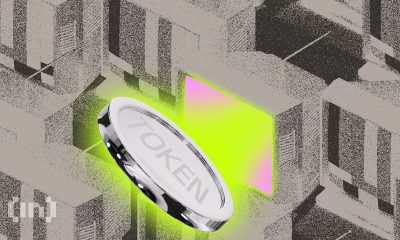
 Market21 hours ago
Market21 hours agoSCR, PLUME, ALT Tokens Unlocking This Week
-

 Altcoin14 hours ago
Altcoin14 hours agoCardano Bulls Secure Most Important Signal To Drive Price Rally
-
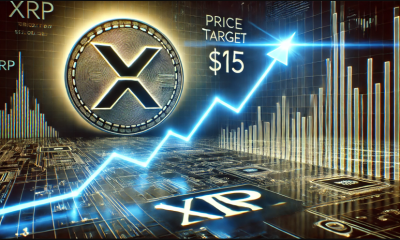
 Market22 hours ago
Market22 hours agoRipple Takes Asia By Storm With New XRP Product, Here Are The Recent Developments
-
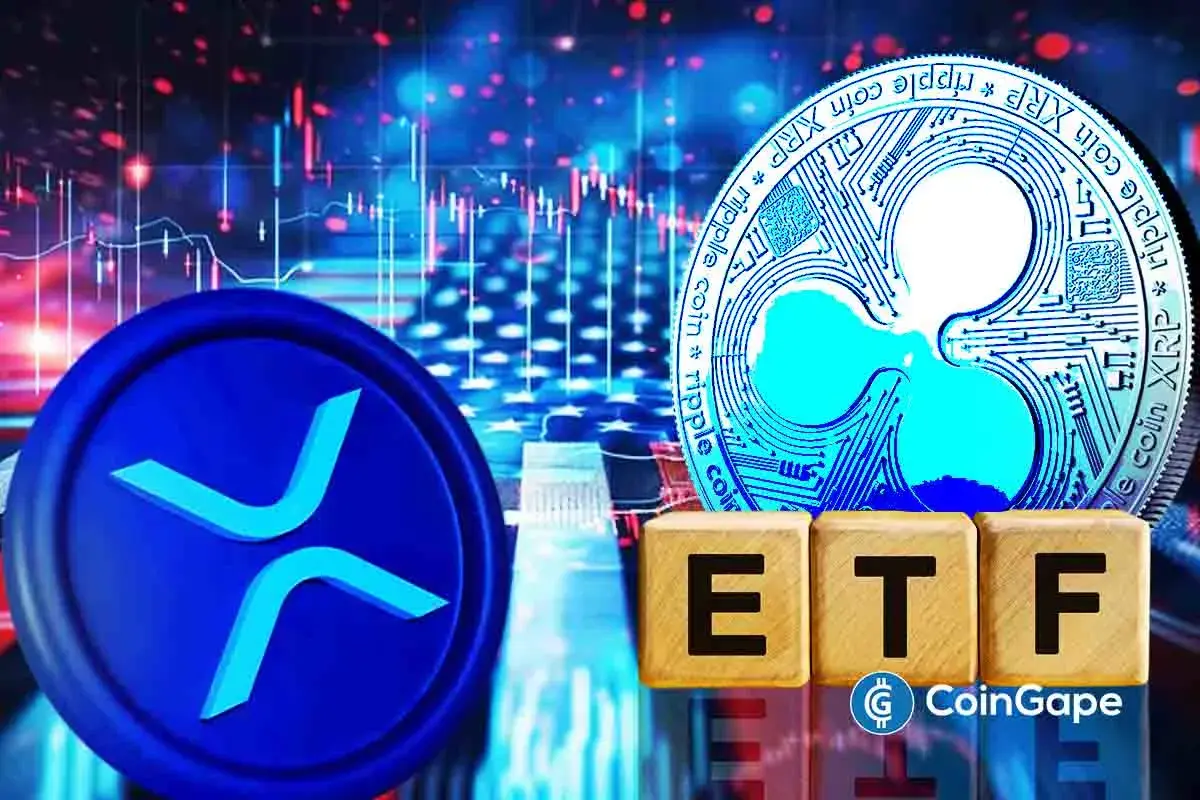
 Altcoin23 hours ago
Altcoin23 hours agoXRP ETF Approval Could Spark a ‘Perfect Storm’ for Ripple Coin: Expert






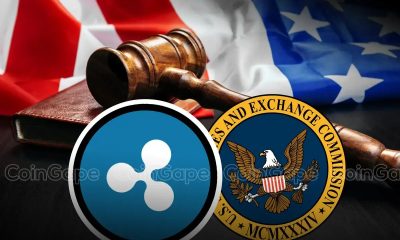



















✓ Share: